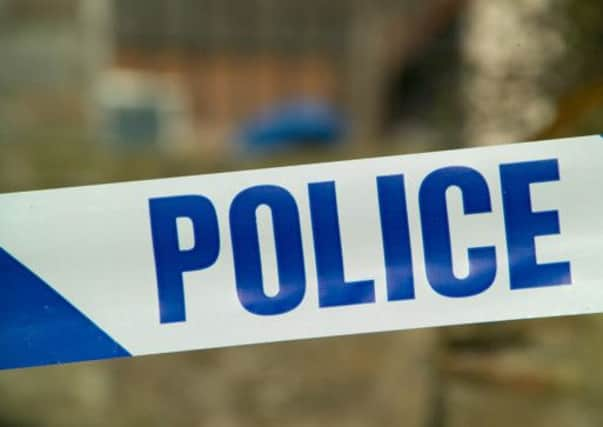Drug drive testing active in the Isle


The new law makes it illegal to drive with a specific controlled drug in the body if it is above an accepted limit, and police will roadside test to check for drugs.
Casualty Reduction Officer Barry Gardner of Humberside police said; “All Roads Policing officers are trained to detect drivers who are under the influence of drugs, there are a worryingly number of drivers now caught drug driving.
Advertisement
Hide AdAdvertisement
Hide Ad“This new law will help reduce the time, expense and effort involved for the police and the courts when prosecutions fail because of the difficulty of proving that a driver is impaired by a particular drug under current legislation.“
The facts are as follows:
* The law change aims to make it easier for the police to catch and convict drug drivers.
* A drug drive conviction will have a serious effect on your life including a criminal record, a minimum 12 month driving ban and a fine of up to £5,000. It could also cost you your job.
* Drugs impair your driving and driving under the influence of drugs is unacceptable. Get caught and you will have to suffer the shame of your family, friends and colleagues knowing you’re a drug driver.
* THINK! don’t take drugs and drive.
Advertisement
Hide AdAdvertisement
Hide Ad* It will be illegal to drive with certain drugs above specified blood levels in the body.
* Limits will be set at very low levels for eight illegal drugs such as cannabis and cocaine.
* Some medicines will also be included in the new law but if you are taking medicines as directed and your driving is not impaired, then you are not breaking the law. To find out more, ask your doctor or a member of the pharmacy team.
* The new legislation will make it easier for the police to tackle drug drivers.
What will it mean for prescription drug users?
Advertisement
Hide AdAdvertisement
Hide Ad* The new legislation covers both illegal drugs and prescription drugs. The Department for Transport (DfT) will therefore run communications to reassure those patients who may be affected by the change in legislation because of the medicines they take.
DfT is working in partnership with healthcare professionals including GPs and pharmacists to help prepare patients for the change in the law and raise awareness once it comes into force.
* Certain medicines may affect your ability to drive.
* This new law states that it is an offence to drive with certain drugs above specified blood levels in the body, whether your driving is impaired or not. This will make it easier for the police to tackle drug drivers.
* The new law sets limits at very low levels for eight drugs commonly associated with illegal drug use, such as cannabis and cocaine, to tackle illegal drug use and driving.
Advertisement
Hide AdAdvertisement
Hide Ad* The law also includes eight medicines that are sometimes abused that have been set at higher limits to reflect their use as medicines, with limits based on the available evidence of the road safety risk. These medicines are:
- morphine used to treat pain – opiate/opioid based medication will metabolise (chemically change) into morphine and show in a blood result.
- diazepam, clonazepam, flunitrazepam, lorazepam, oxazepam, temazepam used to treat anxiety or inability to sleep
- methadone used to treat drug addiction
- Amphetamine used to treat attention deficit hyperactivity disorder (ADHD) and Parkinson’s disease are also planned to be included.
Advertisement
Hide AdAdvertisement
Hide AdIf you are taking your medicine as directed and your driving is not impaired then you are not breaking the law.
The majority of patients that are fit to drive and are taking medicines as directed are unlikely to be above the specified limit and therefore would not be committing the new offence.
Even if you are above the specified limit but your driving is not impaired and you are taking your medicine in accordance with the advice of a healthcare professional and/or as printed in the accompanying leaflet you will also be within the law.
The new law provides a medical defence if you are taking medicine in accordance with the advice of a healthcare professional – provided you are not impaired.
Advertisement
Hide AdAdvertisement
Hide Ad* Always take your medicine in accordance with the advice of a healthcare professional or printed in the accompanying leaflet.
* To find out more ask your doctor or a member of the pharmacy team. www.gov.uk/drug-driving-law
Drink or Drug Driving - the consequences are the same
The penalties for drink or drug driving are the same.
If you are convicted you will receive:
* A minimum 12 month driving ban
* A criminal record
* A fine of up to £5,000 or up to six months in prison or both
The consequences of a drug drive conviction are far reaching and can include:
* Job loss
* Loss of independence
* The shame of having a criminal record
* Increase in car insurance costs
* Trouble getting in to countries like the USA
Advertisement
Hide AdAdvertisement
Hide AdMr Gardner added: “The public can help us too. If you suspect someone is going to take drugs and drive you can phone the police on the non-emergency number 101. We will act on information received by members of the public so I would encourage people to report any such incident to us immediately.”
You can also phone Crimestoppers anonymously on 0800 555 111 or report anonymously on the Crimestoppers website www.crimestopppers-uk.org.